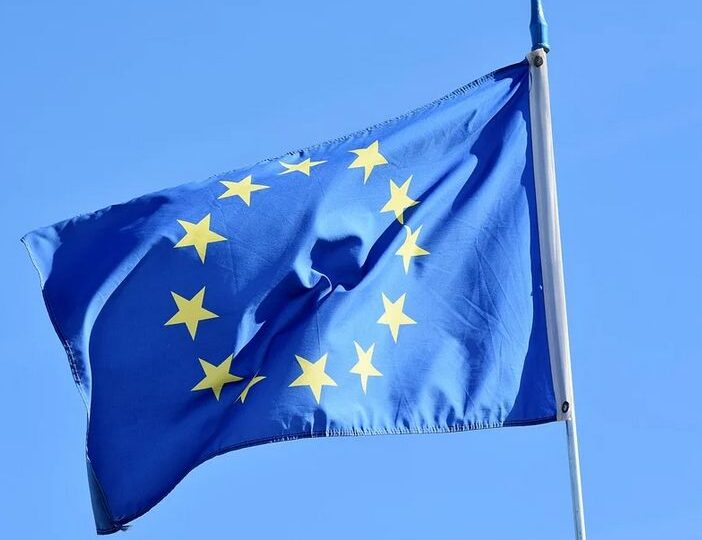New members could join the European Union without full voting rights, a move that could persuade leaders like Viktor Orbán from Hungary to accept EU expansion.
The proposal to amend the EU accession rules is in its early stages and should be approved by all states, according to three European diplomats and a EU official cited by Politico.
It is the latest attempt by pro-expansion members of the EU, such as Austria and Sweden, to breathe life into a process currently blocked by Budapest and a few other states, fearing it could bring unwanted competition to local markets or compromise security interests.
The EU has made expansion a strategic priority amid Russian President Vladimir Putin's expansionist agenda, although the pressure to increase the number of members from the current 27 to up to 30 in the next decade exposes internal divisions within the bloc.
"Future members should be required to waive their veto right until key institutional reforms, such as the introduction of qualified majority voting in most policy areas, are implemented. Expansion must not be slowed down by the blocking of reforms by EU member states," said Anton Hofreiter, the President of the German Bundestag's Committee on European Affairs.
The initiative would allow countries currently on the path to accession, such as Ukraine, Moldova, and Montenegro, to enjoy many of the benefits of EU membership, but without veto rights.
The idea behind the proposal - informally discussed between EU countries and the Commission, according to the same diplomats and officials - is that admitting new countries without veto rights, at least at the beginning of their membership, would allow them to join under more flexible conditions without the need for a revision of the EU's basic treaties, considered impossible by several governments.
Previously, EU leaders insisted that such a revision was necessary before the bloc could admit new members like Ukraine, highlighting the risk of increased blockages in Brussels.
However, efforts to remove the veto right for current EU members have faced strong opposition, not only from Hungary but also from France and the Netherlands.
Frustration on the Rise
The plan for new members to join without full voting rights would "ensure that we remain able to act even in an expanded EU," said Hofreiter. "From discussions with representatives of Western Balkan states, I receive clear signals that this approach is considered constructive and viable," he said.
There is a growing frustration among candidate countries in Eastern Europe and the Western Balkans, which have undertaken extensive internal reforms but are no closer to accession years after submitting their applications. In the case of Montenegro, negotiations for EU accession began in 2012.
"The last country to join the EU was Croatia over 10 years ago - and in the meantime, the United Kingdom has left. That's why I think now is the time to relaunch the process," said Montenegro's President, Jakov Milatović, in an interview with Politico.
Ukraine's Vice Prime Minister for European Integration, Taras Kachka, reiterated these concerns, calling for "creative" solutions to unblock EU expansion. Ukraine's request to join the EU is currently blocked by a veto from Hungary.
"Waiting is not an option," Kachka said in an interview. "So, what we need is to find a solution here and now. This is important for Ukraine but also for the European Union. I believe that as Russia tests European security with drones, the same is done by undermining the unity of the European Union," he emphasized.
While European Commission President Ursula von der Leyen has placed EU expansion at the center of her strategic agenda, promoting the potential accession of Ukraine and Moldova by 2030, EU countries have so far opposed efforts to accelerate the process.
Earlier this month, EU countries rejected an attempt by European Council President António Costa to continue expansion.
Leaders from Western Balkan countries - Albania, Bosnia and Herzegovina, Kosovo, Montenegro, North Macedonia, and Serbia - will meet in London on Wednesday with European leaders for a summit, the "Berlin Process," focused on boosting integration.
Prior to an upcoming Commission assessment of the status of enlargement negotiations with various candidate countries, the so-called enlargement package, one EU diplomat suggested that the Commission could also try to speed up the enlargement process by advancing negotiations without formally seeking approval from all 27 EU countries each time. This would also avoid granting Orbán veto power at each stage of the negotiations.
Expansionist Russia
However, a preliminary version of the conclusions of Thursday's EU leaders' meeting in Brussels does not mention expansion, to the dismay of supporting countries.
EU membership is often presented as the bloc's key geopolitical tool against an aggressive Russia.
"When we look at expansion today, one thing is clear: we need to become faster, less bureaucratic, and more efficient. If the EU does not step up its game, we will lose ground to third parties already waiting to take our place," said Claudia Plakolm, Austrian Minister for Europe, to Politico.
Future EU accession was a key promise in recent elections in Moldova, won by President Maia Sandu and her party, while EU accession has been a key motivation for Ukraine since the 2014 Maidan protests against Russian dominance.
"Ukrainians have been fighting every day for the past three and a half years to keep Russia out of Europe," said Marta Kos, EU Commissioner for Enlargement, to Politico.
However, despite pressure from Brussels, EU leaders, facing growing support for far-right parties in their countries, do not seem to be in a rush to accelerate the bloc's expansion to 30 members or more.
At a press conference in July, German Chancellor Friedrich Merz said he does not expect Ukraine to join the EU within the period covered by his seven-year budget, which extends until 2034.
Ukraine's accession "will probably have no immediate impact on the EU's medium-term financial outlook," Merz said at that time.

